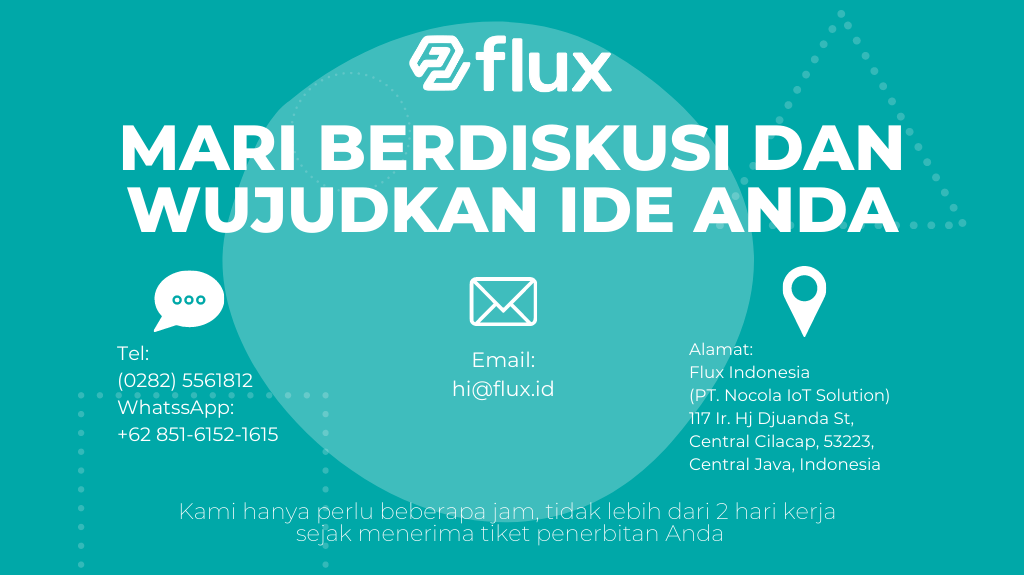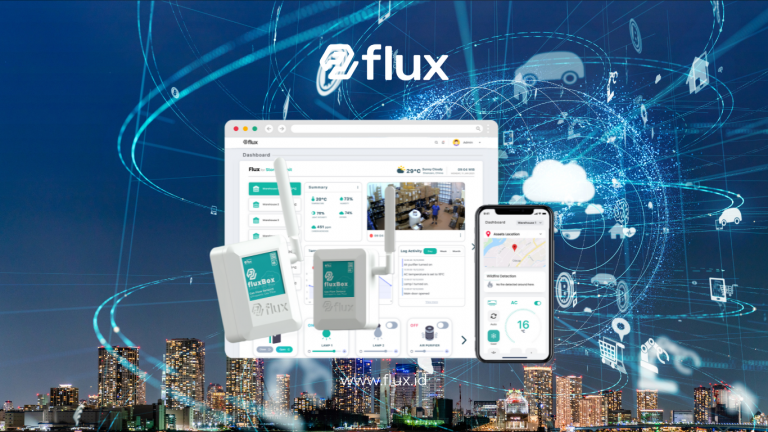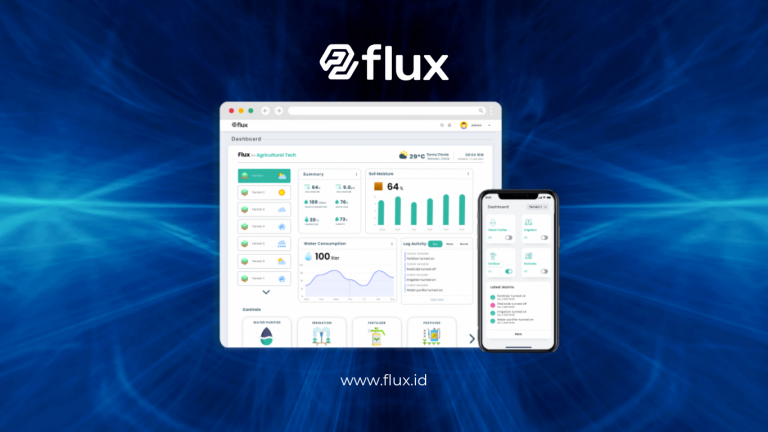Don't miss our holiday offer - 20% OFF!
In the modern industrial era, where competition is growing tougher, operational efficiency has become the key to success. The Internet of Things (IoT) has emerged as an innovative solution to help companies optimize production and management processes. One of the prominent platforms in the IoT technology space is Flux. With advanced features designed to meet the needs of businesses in the digital age, Flux facilitates the integration and automation that are critical for today’s industry. This article will provide an in-depth look at Flux, how its IoT solutions support Industry 4.0 initiatives, and the benefits companies can gain by implementing this technology.
Contents
What Is Flux?

Read More: Hospitals Energy Management IoT
Flux is an integrated IoT platform designed to help companies manage and monitor their devices in a more efficient way. This platform connects various devices and systems, enabling data collection and analysis necessary to enhance performance and productivity.
Key Features of Flux IoT Solutions
- Device Integration: Flux can easily connect to existing devices and technologies, allowing companies to avoid significant investments in replacing current systems. This ensures a smooth and efficient transition.
- Real-Time Data Processing: With the capability to monitor data in real-time, Flux provides accurate and current information to assist management in decision-making. Rapid data processing allows for more agile responses to changes in the industrial environment.
- Support for Analytics: Flux comes equipped with analytical tools that help companies identify patterns and trends in data to support business strategies.
Why Choose Flux for Digital Transformation?

Read More: Benefits of IoT Technology Implementation
1. Improved Operational Efficiency
One of the main benefits of using Flux is the improvement in operational efficiency. By monitoring all aspects of the production process in one platform, companies can quickly identify issues that hinder productivity and make the necessary adjustments.
2. Enhanced Data-Driven Decision Making
Flux offers accurate and up-to-date data, enabling management to make better decisions to direct the business. Data-driven decisions increase responsiveness to situational changes and help formulate more effective strategies.
3. Flexibility and Scalability
Flux is designed to support applications across various industries, from manufacturing to healthcare. This flexibility allows companies to adapt the platform to their growth and changing needs over time.
4. Enhanced Security
Security is a top priority for Flux. With robust security systems in place, the data collected from devices is protected against cyber threats and unauthorized access, ensuring the integrity and confidentiality of business information.
Benefits of Flux in Industry

Read More: EnvironmentallyHospitals Optimizing Energy Management IoT
1. Cost Reduction
By improving process efficiency and minimizing downtime, Flux helps create savings in operational costs. An effective system reduces waste and improves resource utilization.
2. Quality Improvement
With better monitoring, companies can ensure that all products meet expected quality standards. Flux enables the early detection of issues within the production process, allowing for timely corrective actions.
3. Support for Innovation
With cutting-edge technology driven by ongoing research and development, Flux contributes to innovation in business processes. Companies using Flux can quickly adapt to new trends and market needs.
Applications of Flux Across Various Sectors

Read More: development of IoT sensor technology
1. Manufacturing Sector
In the manufacturing industry, Flux is used to monitor production lines and manage product quality. With real-time data, factories can increase efficiency and reduce downtime.
2. Energy Sector
Flux plays a crucial role in monitoring energy usage and emissions. This solution allows energy companies to comply with environmental regulations and improve their energy efficiency.
3. Healthcare Sector
In healthcare services, Flux facilitates the monitoring of medical equipment and patient records. This solution allows for enhanced efficiency and better quality of healthcare services.
4. Transportation Sector
Flux simplifies fleet vehicle management by providing critical data related to vehicle location and condition, aiding in route planning and reducing operational costs.
Best Practices for Implementing Flux Solutions

Read More: Implementing Temperature Sensors in IoT
1. Clear Implementation Plan
Creating a detailed and structured implementation plan is essential before deploying Flux. This plan should include a comprehensive analysis of needs and specific objectives to be achieved.
2. Employee Training
Ensuring that all employees receive thorough training on how to use Flux will help them maximize the system’s benefits. Proper training also enhances user confidence in using the new system.
3. Customization According to Needs
Adjust the features of Flux to fit your company’s specific needs. Proper customization will help improve the efficiency of the system.
4. Routine Monitoring and Evaluation
Conduct regular evaluations to monitor the effectiveness of the Flux system and identify areas that need adjustments or improvements.
Conclusion
With Nocola, digital transformation becomes not just a dream but a reality that can be implemented. This integrated IoT solution aids companies in optimizing operational efficiency, improving decision-making, and positively contributing to sustainability.
In a rapidly changing environment, investing in Flux is a smart step to remain competitive in an increasingly interconnected world. Let us work together to harness technology as the main driver of business success and industry sustainability!





